With compassion and humor, Ezra Bayda has graced us with ways to accept what is and to reside in it fearlessly, giving us a roadmap to enduring happiness and equanimity.
David Richo, PhD, author of The Five Things We Cannot Change
A wise and deep-hearted book, a must-read for todays world.
Roshi Joan Halifax, Upaya Zen Center
This book offers an extremely sane, practical, and grounded approach to the larger happiness that lies beyond conventional notions of happiness. Ezra Bayda details simple yet powerful methods both to work with mental and emotional obstacles and to cultivate well-being, and its clear that his hard-won insights grow out of his own dedicated inquiry and practice. Highly recommended.
John Welwood, author of Toward a Psychology of Awakening
Baydas writing is straightforward and his wisdom hard-earned. When he tells us that he himself was born with a fairly low set point for happiness, you get the feeling that Bayda understands what it is that gets people stuck and, having learned a few things himself over years of practice, that his only agenda for Beyond Happiness is to help people find their own way. Fortunately for readers, hes a trustworthy guide.
Tricycle Magazine
Baydas deep understanding of his topic allows him to keep a conversational tone and tie his wisdom into everyday practices. This book is a genuine attempt to help people to see beyond their daily preoccupations and move towards a path of fulfillment.
PsychCentral.com
Good advice from a compassionate teacher
NewAgeJournal.com
ABOUT THE BOOK
Many books have been published in recent years on happiness. Ezra Bayda, a remarkably down-to-earth Zen teacher, believes that the happiness boom has been largely a bust for readers. Why? Because its precisely the pursuit of happiness that keeps us trapped in cycles of dissatisfaction and suffering.
In Beyond Happiness , Bayda draws on Zen teachings to question our conventional notions about what happiness is and where we can find it. Most of us seek happiness in things that are external to us. We imagine that getting more money, a better relationship, or going on a nice vacation will finally make us happy. But Bayda shows us that the deepest and most lasting form of happiness does not rely on external circumstance at all. Bayda offers Zen insights and practices that point readers toward the true sources of lasting happiness: mindfulness, compassion, gratitude, and generosity.
EZRA BAYDA teaches at Zen Center San Diego. He is also the author of Being Zen, At Home in the Muddy Water, Saying Yes to Life (Even the Hard Parts), and Zen Heart . For more information, visit www.zencentersandiego.org.
Sign up to learn more about our books and receive special offers from Shambhala Publications.

Or visit us online to sign up at shambhala.com/eshambhala.
Beyond Happiness
The Zen Way to
True Contentment
E ZRA B AYDA
 Shambhala Boston & London 2010
Shambhala Boston & London 2010
S HAMBHALA P UBLICATIONS , I NC .
Horticultural Hall
300 Massachusetts Avenue
Boston, Massachusetts 02115
www.shambhala.com
2010 by Ezra Bayda
All rights reserved. No part of this book may be reproduced in any form or by any means, electronic or mechanical, including photocopying, recording, or by any information storage and retrieval system, without permission in writing from the publisher.
Library of Congress Cataloging-in-Publication Data
Bayda, Ezra.
Beyond happiness: the Zen way to true contentment / Ezra Bayda.1st ed.
p. cm.
eISBN 978-0-8348-2176-7
ISBN 978-1-59030-825-7
1. Religious lifeZen Buddhism. 2. HappinessReligious aspectsZen Buddhism. 3. Zen BuddhismDoctrines. I. Title.
B9286.2.B39 2010
294.32442DC22
2010022472
Contents
This is a book about genuine happiness. In the spirit of the topic Ive included a number of jokes, based on my view that its worthwhile to poke little holes in the often-held view that Zen practice and spiritual awakening must be somber and serious activities. In the face of lifes difficulties, its always good to find something to brighten our spirits. Cultivating a sense of humor is actually essential to living from the lightened heart of true contentment. This is particularly true when we acknowledge how easy it is to take ourselves too seriously. Most of the jokes I tell in this book have been adapted from the book Plato and a Platypus Walk into a Bar... by Thomas Cathcart and Daniel Klein, a book I highly recommend to anyone who wishes to lighten up.
Thanks to the people at Shambhala Publications for their continuing support, specifically to Dave ONeal, who initially encouraged me to write this book, and to Eden Steinberg, who gently and skillfully helped in clarifying my message.
Thanks to my daughter Jenessa, who has edited all five of my books, always with a perceptive eye for nuance. And finally, I am continuously thankful to my wife and fellow teacher, Elizabeth, not only for her keen insight as an editor but also for her unwavering support and irrepressible good cheer.
Many books and articles have been published in the last several years on happiness, most of them promising quick fixesguarantees to take away our anxiety and depression and replace them with a cheerful outlook. But evidence suggests that since this happiness boom began, our levels of anxiety and dis-ease have actually increased. The sense of entitlement that comes with the belief that happiness is our birthright, and the typically Western belief in the quick fix, seems to have led to an even greater sense of disconnectedness.
The Dalai Lama has said that the purpose of human life is to be happy. Philosophers such as Aristotle, St. Augustine, and Pascal have said the same thing. This is certainly a good question to ask ourselves: Is the purpose of human life to be happy? But perhaps we should first ask: What do we mean by happiness?
A while back a fairly new student came to talk to me about his Zen practice. In the middle of our conversation he acknowledged that he really didnt care about being enlightened or anything deeply spiritualhe said he just wanted to be happy. He asked me if, after my years of meditating and teaching Zen, I felt I was truly happy. I answered that yes, I felt genuinely happy, but what I meant by being happy was quite possibly not the same as he might understand it. It was certainly different from the way I used to understand it.
Often, when were young, we equate happiness with pleasure and sensual enjoyment. As we get older, we may equate it more with security and controlhaving things like money and good health. We might also equate it with our accomplishments. Or we could equate it with the connection we feel in particular relationships. Its important to realize that all of these aspects or levels of happiness are based, in part, on the external circumstances of our lives. Yet perhaps external circumstances play a smaller role in our happiness than we might believe.
Interestingly, current research has proven this, that external circumstances have a much smaller impact than we may think in determining our happiness. Instead, it appears that each of us is born with a happiness set point. We are each predisposed to feel a certain level of happiness, and no matter the circumstances of our lives, we tend to return to our set point. You could say that we come out of the womb with our happiness level already set. For example, if we are born with a high set pointnaturally upbeat and optimisticwe could get very sick or become paralyzed and still, after a period of adjustment, be just as happy as we were before we got sick or disabled. By contrast, if we are born with a low set point for happinesswith a predisposition for seeing the glass as half emptywe could inherit a million dollars, and even though we might be happy for a while, we would eventually return to our original state of unhappiness.
Next page
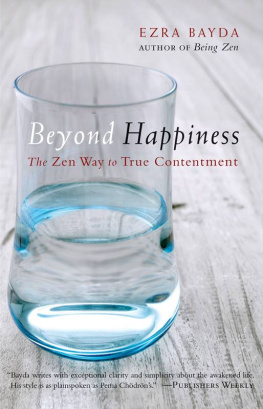
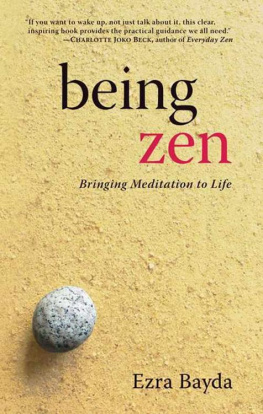
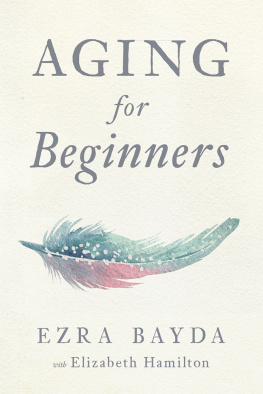
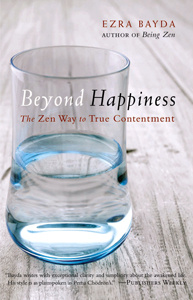
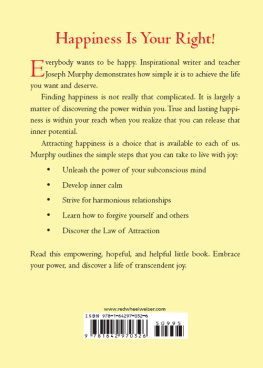
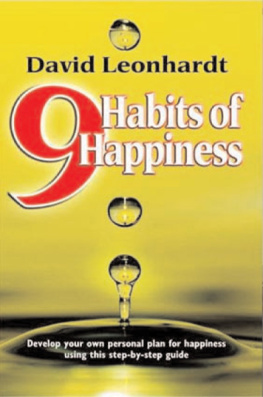

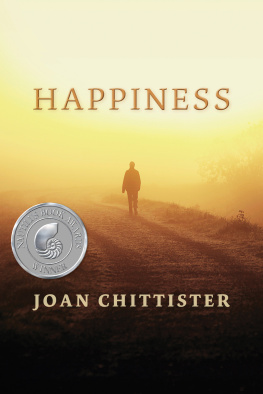
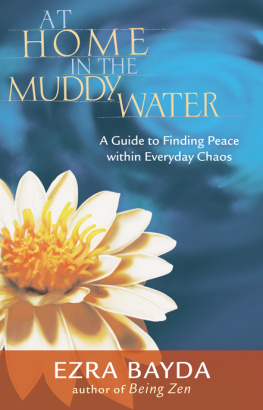
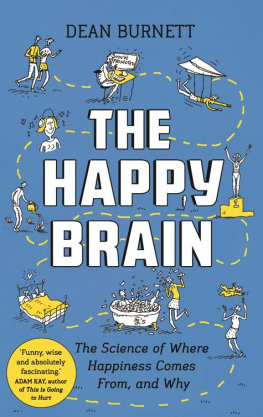
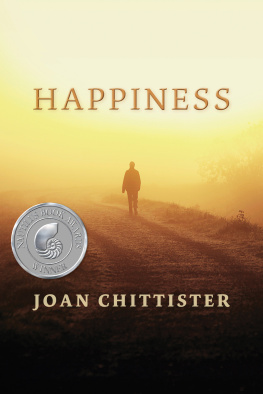
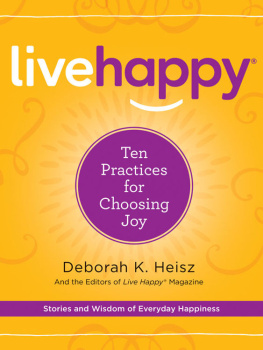
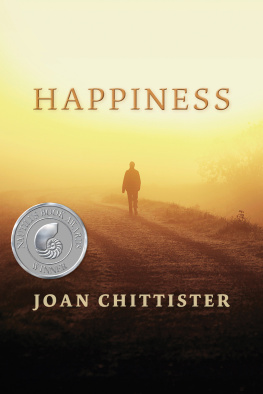
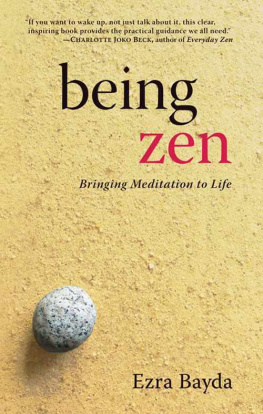

 Shambhala Boston & London 2010
Shambhala Boston & London 2010